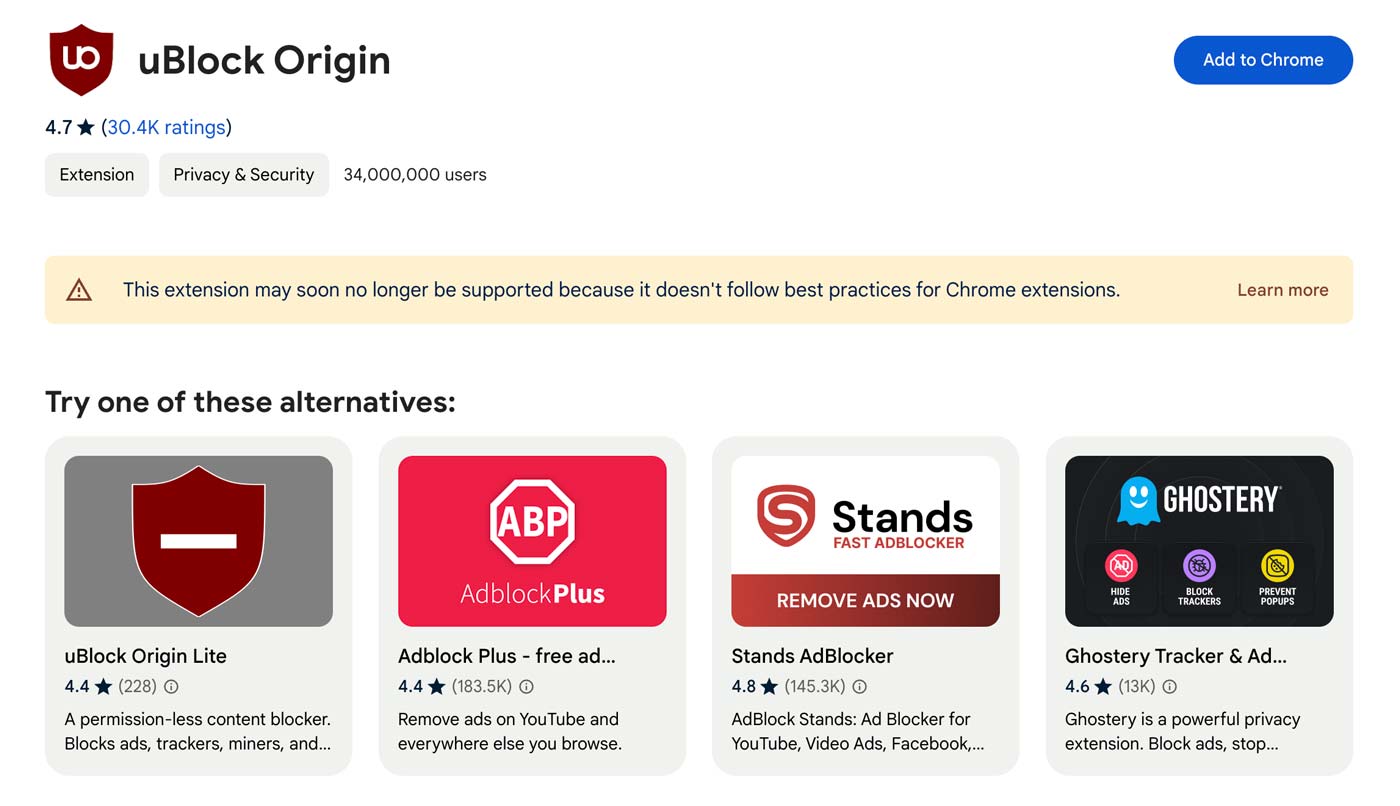Google Chrome is Removing One of the Most Popular Ad Blockers, uBlock Origin, from the Chrome Web Store

If you’re like most internet users, you probably likely use Google Chrome for browsing. It’s also possible that you’re using an ad blocker for Google Chrome.
Google isn’t very happy about the use of ad blockers, for obviously reasons. As the world’s biggest advertising company, they’re making some significant changes to Chrome that could soon affect how you block ads.
Google is Removing uBlock Origin
Google is updating its Chrome extensions to make browser add-ons safer, more efficient, and compliant with modern web standards. However, the update will also remove one of the most popular ad blockers, uBlock Origin, which has over 34 million users on Chrome alone, from the Chrome Web Store.

As of now, uBlock Origin still works, but Chrome updates will soon automatically disable it. Users will be able to manually re-enable it for a limited time, but eventually, that option will disappear. When that happens, Chrome users who love uBlock Origin will face a tough choice: find a new ad blocker or switch to a different browser.
uBlock Origin Lite
The developer of uBlock Origin, Raymond Hill, is already preparing for the change. He’s created a new version of the tool called uBlock Origin Lite, which is compliant with the latest Google Chrome update but lacks some advanced features found in the original uBlock Origin. This means that uBlock Origin may not be able to block all digital ads. For those who prefer the full power of uBlock Origin, it will continue to work on other browsers like Firefox, Edge, and Opera.
Why Is Google Making These Changes?
There are a number of reasons why Google Chrome is making updates and one of them is definitely making ad blockers obsolete so that Google Ads and other Google-powered advertising platforms can generate more revenue and improve its bottom line.
As the battle between ad blockers and advertisers continues to evolve, the future of ad blocking on Chrome remains uncertain. For now, users should be aware of the changes ahead and consider their options—whether that’s adopting a new ad blocker, switching browsers, or simply adapting to an ad-centric internet.

